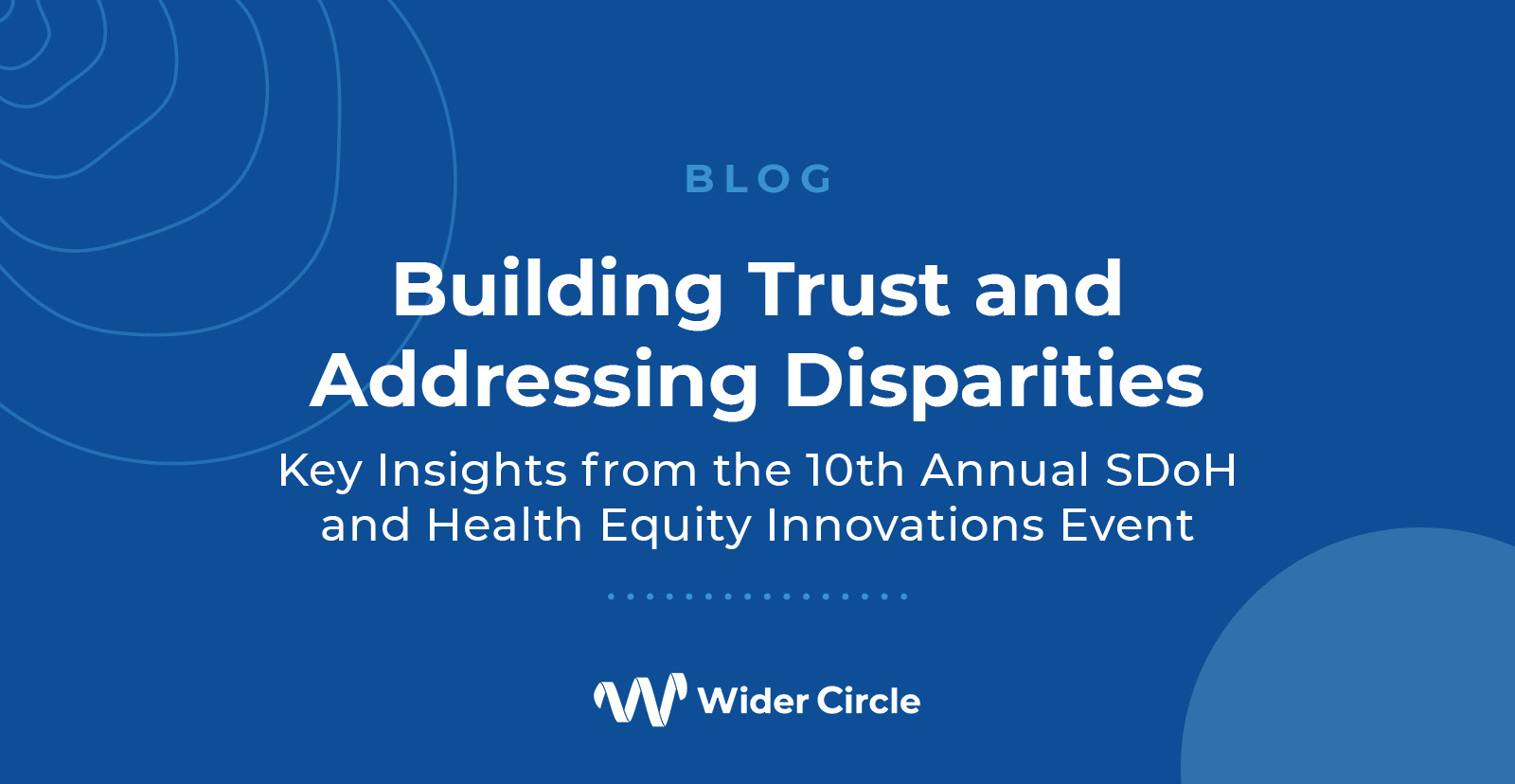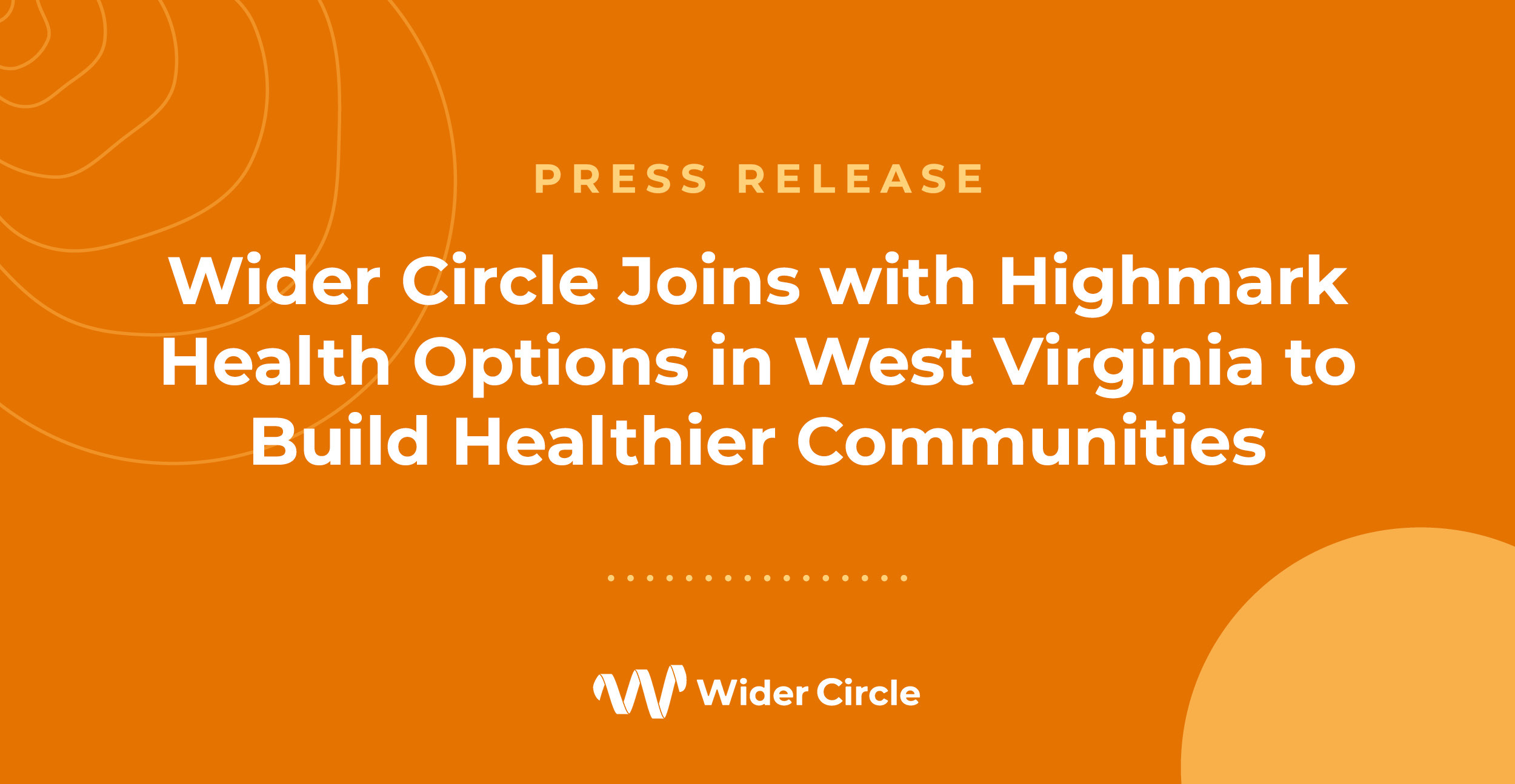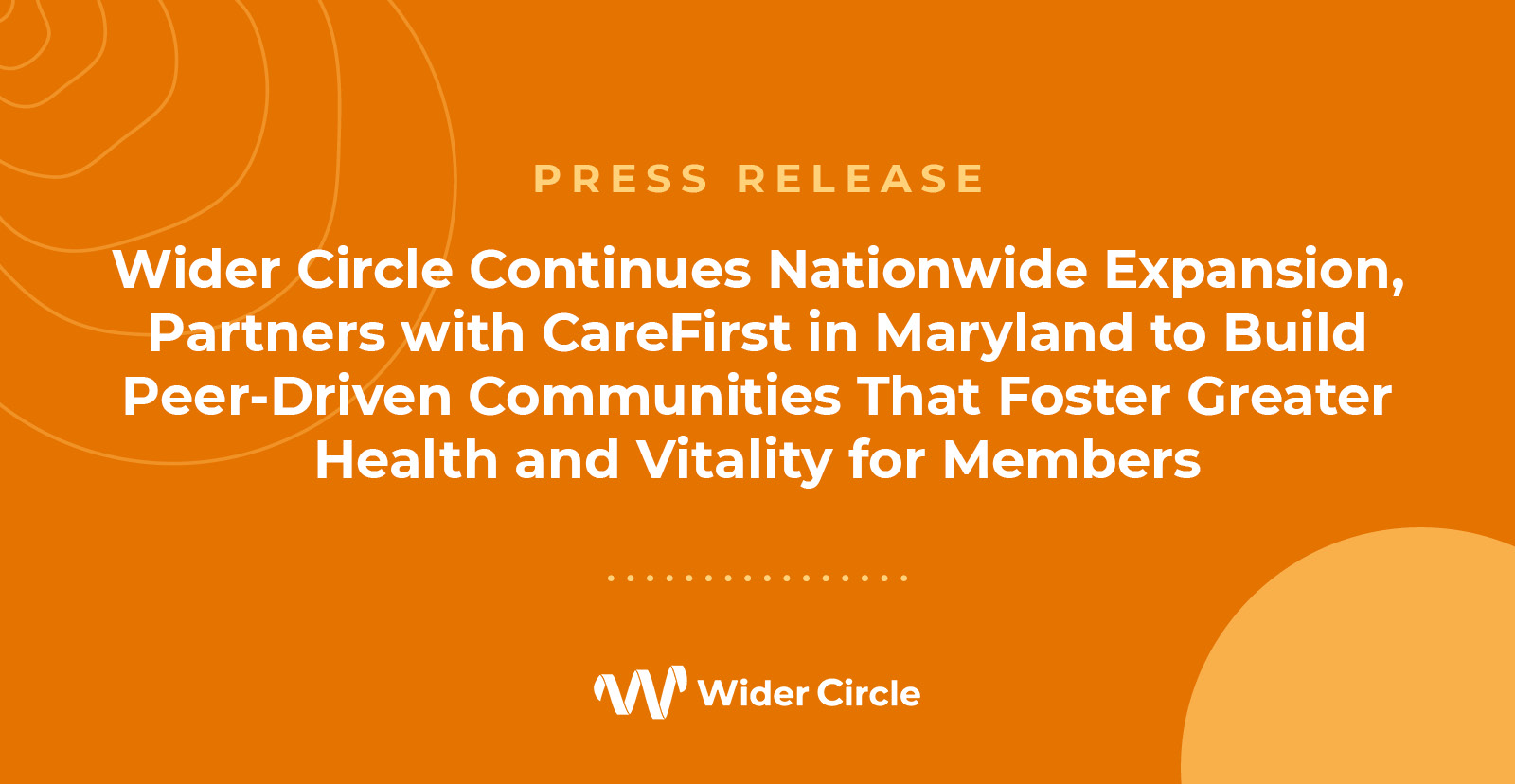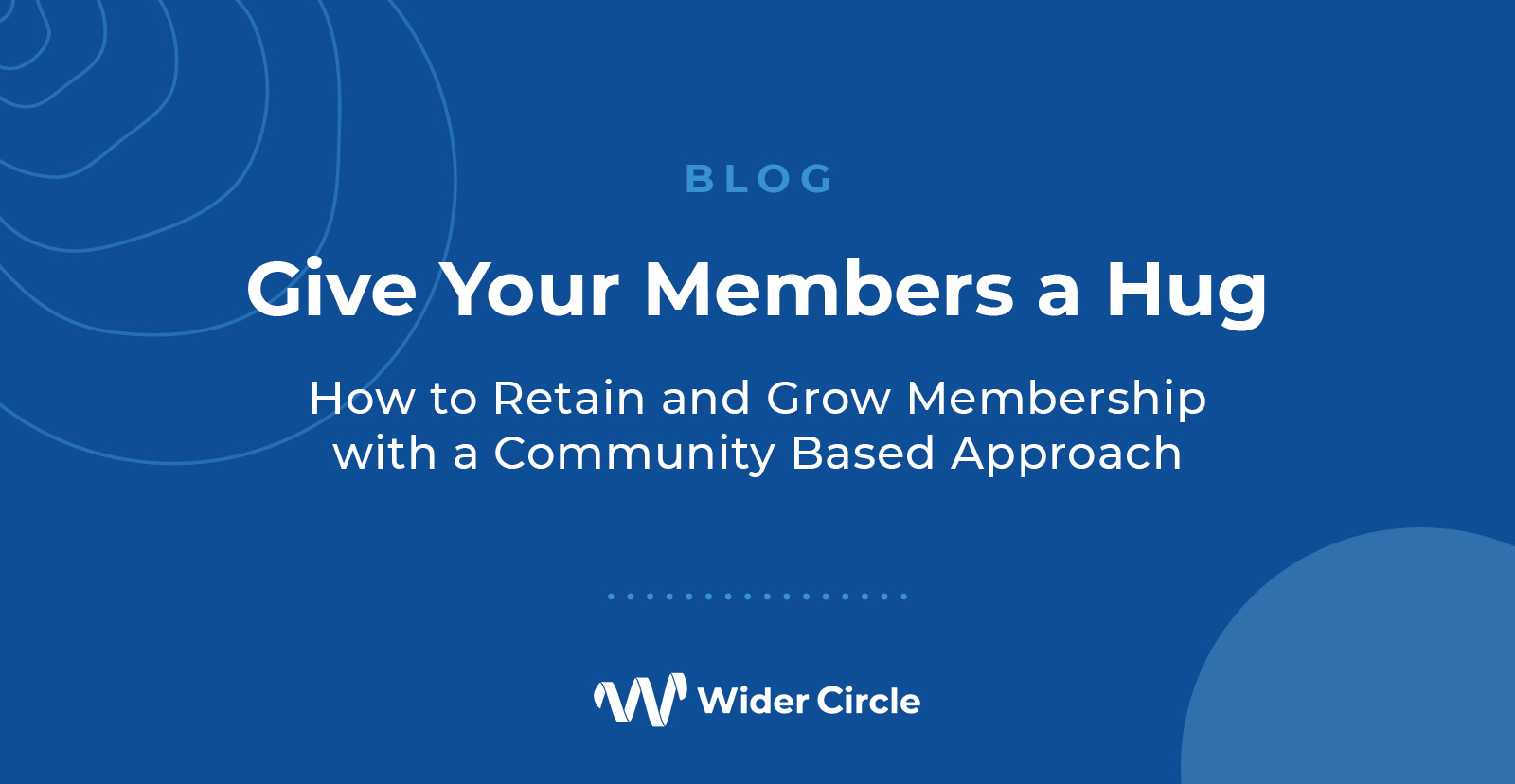
By Bill Friedman
Wider Circle was thrilled to support, sponsor and speak at the 10th Annual SDoH and Health Equity Innovations to Transform Population Health conference. Last week’s event brought together healthcare professionals, community leaders, and advocates dedicated to addressing social determinants of health (SDoH) and advancing health equity. The event offered a collaborative platform for discussing practical strategies and solutions to tackle some of the most pressing issues playing out in public health.
For this event, I was joined by Chiquela Harrison, an Area Manager at Wider Circle who shared her extensive insights into grassroots community engagement based on her firsthand Wider Circle experiences in our joint session, “Addressing SDoH and Health Equity in Today’s Healthcare System”. It was here that she detailed her perspective on how to effectively build trust within communities that may be skeptical or hesitant to engage with external services.
Trust is the cornerstone of effective community-based service delivery. Wider Circle’s approach mindfully takes into account the importance of empathy, cultural competence, and sustained engagement in overcoming barriers to healthcare access and utilization to improve health outcomes. During the session, we highlighted many of the challenges and opportunities to reach members and effectively deliver community-based services. Chiquela’s emphasis on the importance of establishing genuine connections and understanding the unique dynamics of each community resonated deeply with attendees.
Another critical focus of the session was maternal health, particularly the stark disparities in maternal health outcomes. The presentation shed light on the alarming inequities faced by many mothers, especially those from minority and low-income backgrounds. In 2021, 69.9 black women died per 100,000 live births—a rate that was 2.6 times higher than that of white women that year, according to the CDC. These disparities are not just a matter of healthcare access but are deeply rooted in broader social determinants such as housing, nutrition, and systemic racism. Addressing maternal health disparities requires a multifaceted approach that includes providing quality prenatal and postnatal care and tackling the underlying social and economic factors that impact health. Improving maternal health outcomes involves not only the healthcare system but also collaboration with community organizations, policymakers, and other stakeholders to create a supportive environment for all families.
Achieving health equity requires systemic changes at multiple levels, from individual healthcare practices to national policies. This includes addressing implicit biases within the healthcare system, ensuring equitable distribution of resources, and promoting policies that support the health and wellbeing of all communities.
The 10th Annual SDoH and Health Equity Innovations to Transform Population Health event served as a call to action for all stakeholders in the healthcare ecosystem and challenged attendees to think critically about how they can contribute to building a more equitable healthcare system. As we continue to navigate the path toward true health equity, the actionable ideas exchanged during this event will be instrumental in shaping a more inclusive and just healthcare system for all.


